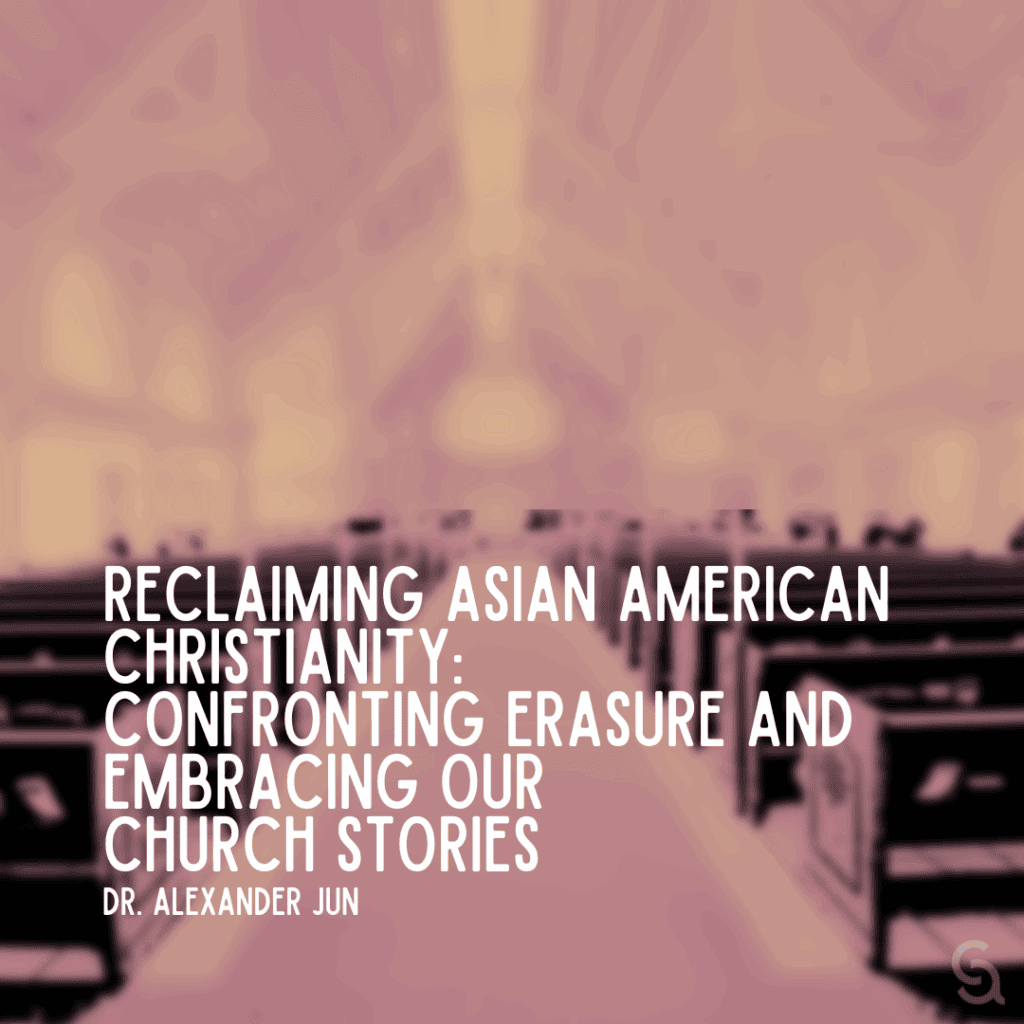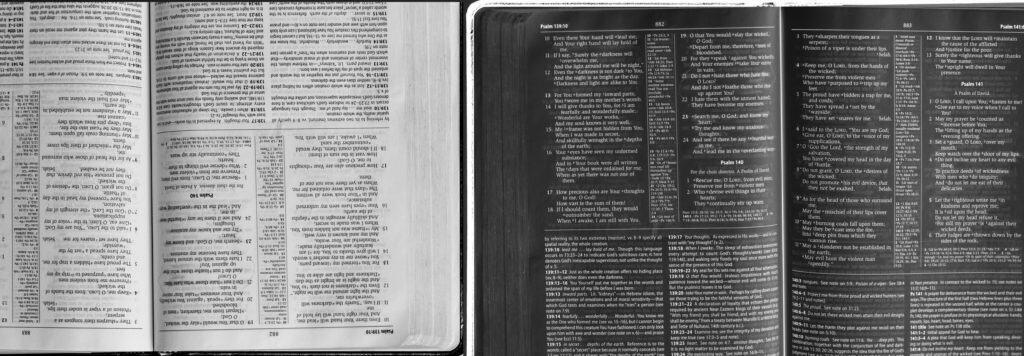What Does Whiteness Mean to You?

By Tammy Perlmutter
Maggie Hubbard was involved in a church community in Seattle that was committed to racial reconciliation when she realized she didn’t understand her own race or how race functioned in America.
Navigating Racial Injustice: Lessons from Canada’s Colonial Legacy and the Church’s Response

By Mark Glanville
Introduction: Learning from Canada’s Journey
As we seek a path through racial injustice toward a more joyful future, it can be helpful to consider how societies outside the United States walk this path.
Reclaiming Asian American Christianity: Confronting Erasure and Embracing Our Church Stories

By Dr. Alexander Jun
As we celebrate AAPI Heritage Month, we must acknowledge the vital role Asian American churches play in North American religious history. These stories must not be erased, overlooked, downplayed, or dismissed.
Lamento y Liberación | Lament and Liberation

By Inés Velásquez-McBryde
Racism has joined with sexism to dismember women of color at a cost to our heads, hearts, bodies, and souls. It has also dismembered women from women and women from men. We must repent, restore, and re-member back the places long devastated and rebuild the broken bride of Christ.
The ‘fleshiness of the story’: David de Leon on the complexities of Asian American Christian identity

By Leah Silvieus
David de Leon speaks to the relationship between the complexities of understanding “Asian American Christian identity,” the interconnectedness of journeys toward justice, and what is next for him in his vocational path as a doctoral student in Systematic Theology at Fordham University.
Why This Theologian Argues a ‘Bad-Ass’ Christianity May Be Our Only Hope to Defeat Christian Nationalism

By Miguel De La Torre
What good is the pursuit of the intellect if it does not contribute to the betterment of humanity? Eurocentric scholarship has been reduced to knowing, not transforming. For those who are minoritized by Eurocentric academics, the goal of the scholar who is prophetic is to seek harmony with what the future might bring while remaining faithful to one’s beliefs and/or worldview—providing encouragement when it leads toward justice, dire warning when it does not.
On What Would’ve Been Her 98th Birthday, Can We Learn Something From Flannery O’ Connor’s Racism?

By Jacqueline Bussie
What if the most astonishing greatness about Flannery O’Connor is not some moral life she lived but the grace her own writing brought into her own airless, privileged box of whiteness? The way grace liberated much of her writing from her own bias, prejudice, and racism?
Why, Between White Jesus and Me, One of Us Had to Die

By Tamice Spencer-Helms
It had been three years since Trayvon Martin was killed. I was living in Atlanta, Georgia, working full-time for a mostly white college ministry. And I was dying inside.
I spent the three years after Trayvon died in perpetual despair.
Racism Is No Fluke: A Response to Anthea Butler’s “White Evangelical Racism”

By Brandi Miller
Originally published June 9, 2021
After the presidential victory of Donald Trump wherein the vast majority of White evangelicals voted for the celebrity-turned-crass-politician, many Christians both inside and outside the church were forced to reckon with an issue of identity.
The Bible in Black & White: Lessons from the Postemancipation South

By Elizabeth L. Jemison
As black and white Christians in the postemancipation era wrestled with the often-intimate relationship between Protestant Christianity and white supremacy, they set the stage for national religious and political conflicts that reverberate to our day.
